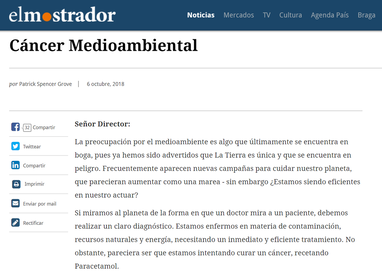|
Publication: Pending. Abstract:
The construction of high-rise buildings has been globally increasing for years, as a response to densification, social needs and economic growth around world. In Santiago, Chile, said buildings can rise from twenty stories up to 50 stories high, accommodating hundreds of people in their working or living spaces. The environmental impact of these buildings is therefore, much greater than a single story or a low-rise construction -whilst having the same land use- making energy efficiency and sustainability important aspects of analysis. In this context, one of the most relevant aspects of architectural design in high-rise buildings is the composition of the transparent building envelope. The morphology of high-rise buildings makes the vertical facades a key element of study, because it accounts for most of its thermal gains and losses, due to higher surface dimensions. This is particularly important in building typologies that have high internal loads, hence creating considerable thermal “gains” that create poor thermal comfort conditions and greater HVAC costs. Therefore, the quality of the transparent building envelope -specifically thermal transmittance and shading coefficient- will be critical to provide optimal comfort and lower energy use. The relationship between shading coefficient reduction (or increase) of the transparent building envelope and the energy consumption, can be thus quantified and a measured in numerical terms. Keywords: Glazing, Thermal Comfort, Solar Factor, Shading Coefficient, Thermal Transmittance, Energy Consumption, Transparent Building Envelope. Publicación: El Mostrador. La preocupación por el medioambiente es algo que últimamente se encuentra en boga, pues ya hemos sido advertidos que La Tierra es única y que se encuentra en peligro. Frecuentemente aparecen nuevas campañas para cuidar nuestro planeta, que parecieran aumentar como una marea - sin embargo ¿Estamos siendo eficientes en nuestro actuar?
Si miramos al planeta de la forma en que un doctor mira a un paciente, debemos realizar un claro diagnóstico. Estamos enfermos en materia de contaminación, recursos naturales y energía, necesitando un inmediato y eficiente tratamiento. No obstante, pareciera ser que estamos intentando curar un cáncer, recetando Paracetamol. Las bombillas plásticas – tan repudiadas hoy en día – conforman sólo el 0.03% del plástico en el océano, según reportes de Bloomberg. Las mallas de pesca en cambio, el 46%. El consumo energético en iluminación de la vivienda promedio en Chile, representa un 3% de su gasto anual, mientras que la calefacción constituye cerca de un 56% - y sin embargo se insta constantemente el cambio a ampolletas LED - sin referirse a la aislación térmica. Se promueve con un afán sinigual el ahorro de agua domiciliario, cuando pocos saben que sólo 1 kg de carne tiene una huella hídrica de aproximadamente 15.000 litros de agua. Estas cosas y tantas otras, son el verdadero cáncer de La Tierra – y si bien por supuesto es valioso aportar con pequeñas iniciativas – es crítico que cuestionemos esta marea de información que recibimos y que tomemos un rol proactivo de educación y empoderamiento ciudadano. Sólo con un esfuerzo conjunto, pero por sobre todo eficiente, seremos capaces de dar un real tratamiento a este cáncer que hoy por hoy, nos tiene enfermos. |
AutorPatrick Spencer Grove Archivos
November 2022
Categorías
All
|

